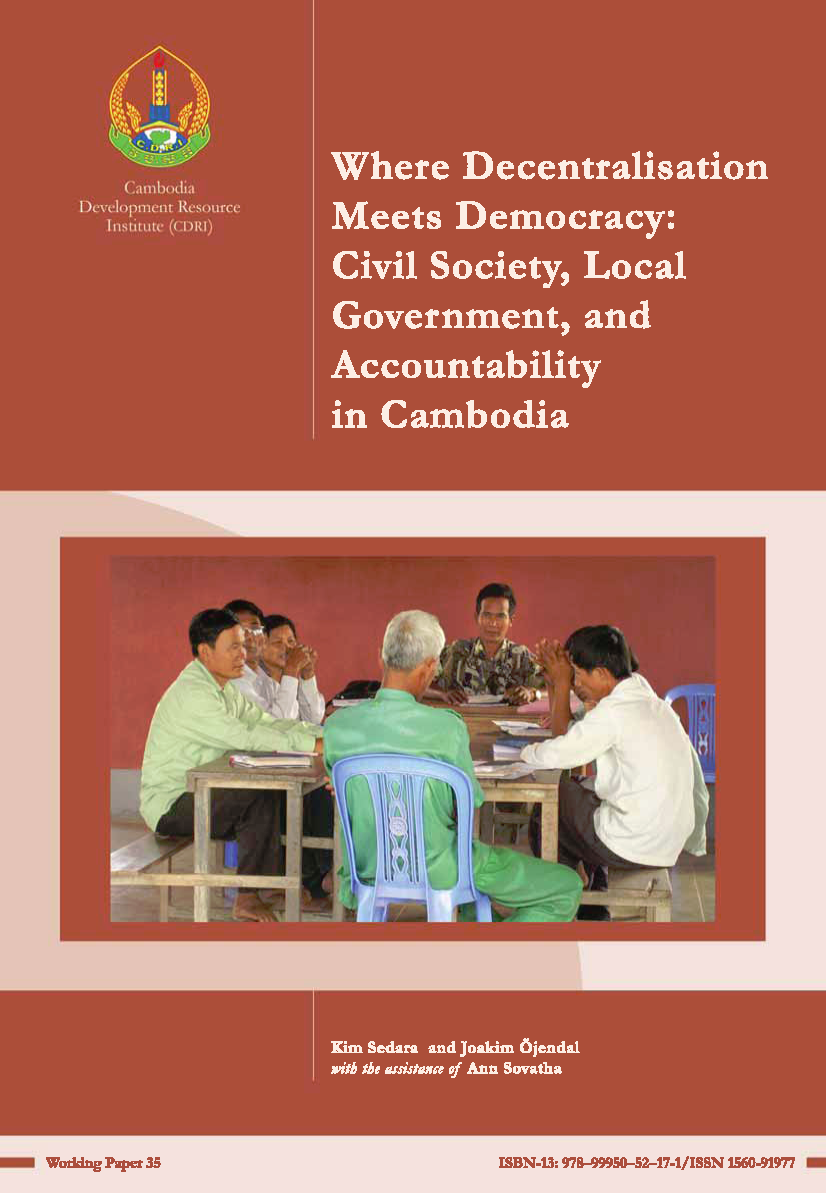
Where Decentralisation Meets Democracy: Civil Society, Local Government, and Accountability in Cambodia
This working paper explores the intersection of decentralisation and democratic development in Cambodia, focusing on the role of community-based organisations (CBOs) in enhancing local government accountability. Drawing on field research in five communes, the study examines three types of CBOs—School Support Committees (SSCs), Forestry Communities...
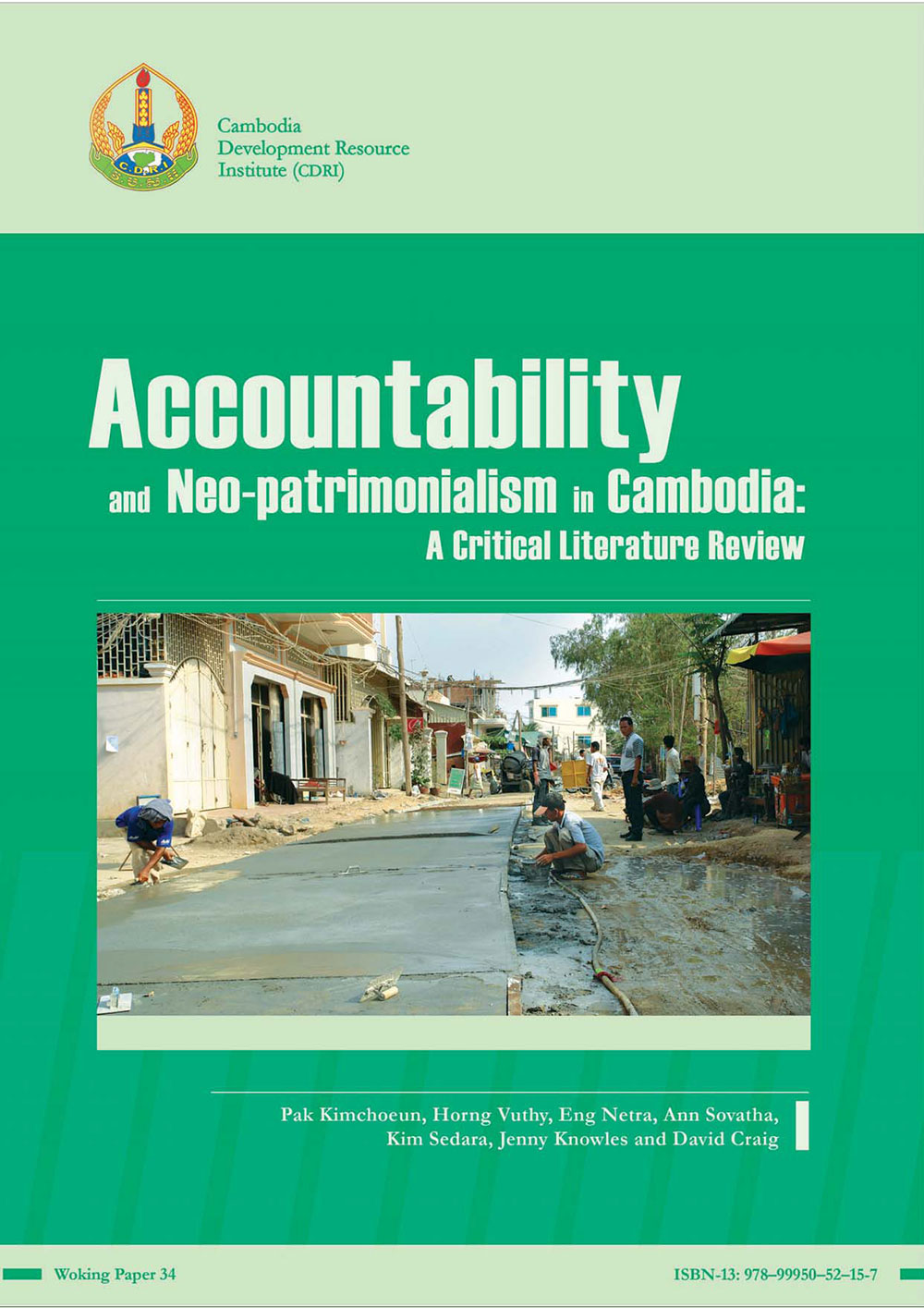
Accountability and Neo-patrimonialism in Cambodia: A Critical Literature Review
This working paper critically examines the concept of accountability within Cambodia’s evolving governance landscape, particularly in the context of decentralisation and deconcentration reforms. Drawing on international public administration theories and Cambodia’s unique socio-political history, the paper explores how traditional patron-client...
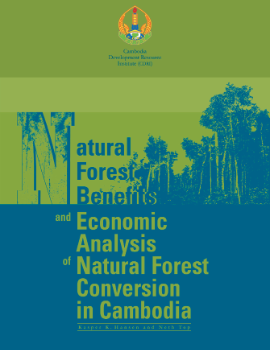
Natural Forest Benefits and Economic Analysis of Natural Forest Conversion in Cambodia
This study investigates the economic and environmental implications of converting Cambodia’s natural forests into alternative land uses. Using a Total Economic Value (TEV) framework and a value flow model, the research assesses direct and indirect benefits of evergreen, semi-evergreen, and deciduous forests, including non-timber forest products (NT...
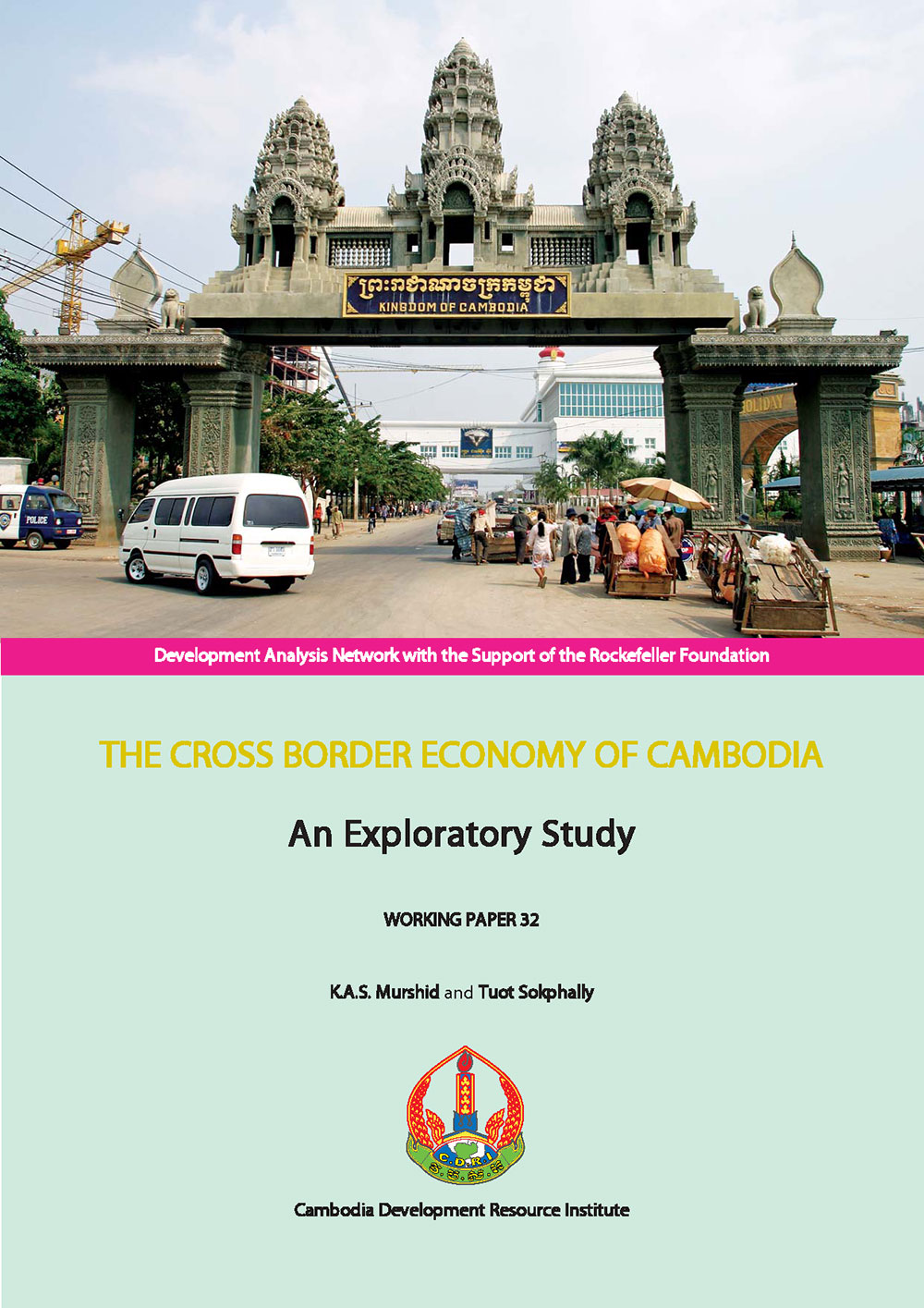
The Cross Border Economy of Cambodia: An Exploration Study
This study attempts to examine four aspects relating to the cross border economy of Cambodia:a) The overall regulatory regime and evolving trade policy of Cambodia, including participation in international trading arrangements;b) Specific policy issues or strategies for development of cros...

Law Harmonisation in Relation to the Decentralisation Process in Cambodia
This working paper examines the legal framework underpinning Cambodia’s decentralisation reforms initiated in 2001, focusing on the harmonisation of laws and regulations that support the devolution of authority to commune and sangkat councils. It provides a comprehensive analysis of the historical evolution of decentralisation, the current legal an...
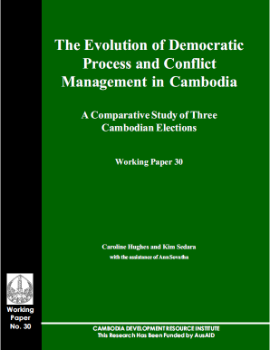
The Evolution of Demoncratic Process and Conflict Management in Cambodia: A Comparative Study of Three Cambodian Elections
This study examines the evolution of mechanisms for conflict management since 1998, and their effectiveness in preventing conflict escalation during the general elections of 2003. The study draws on extensive field research carried out by CDRI researchers on the 1998 and 2003 elections, and on the practical experience of conflict management gai...
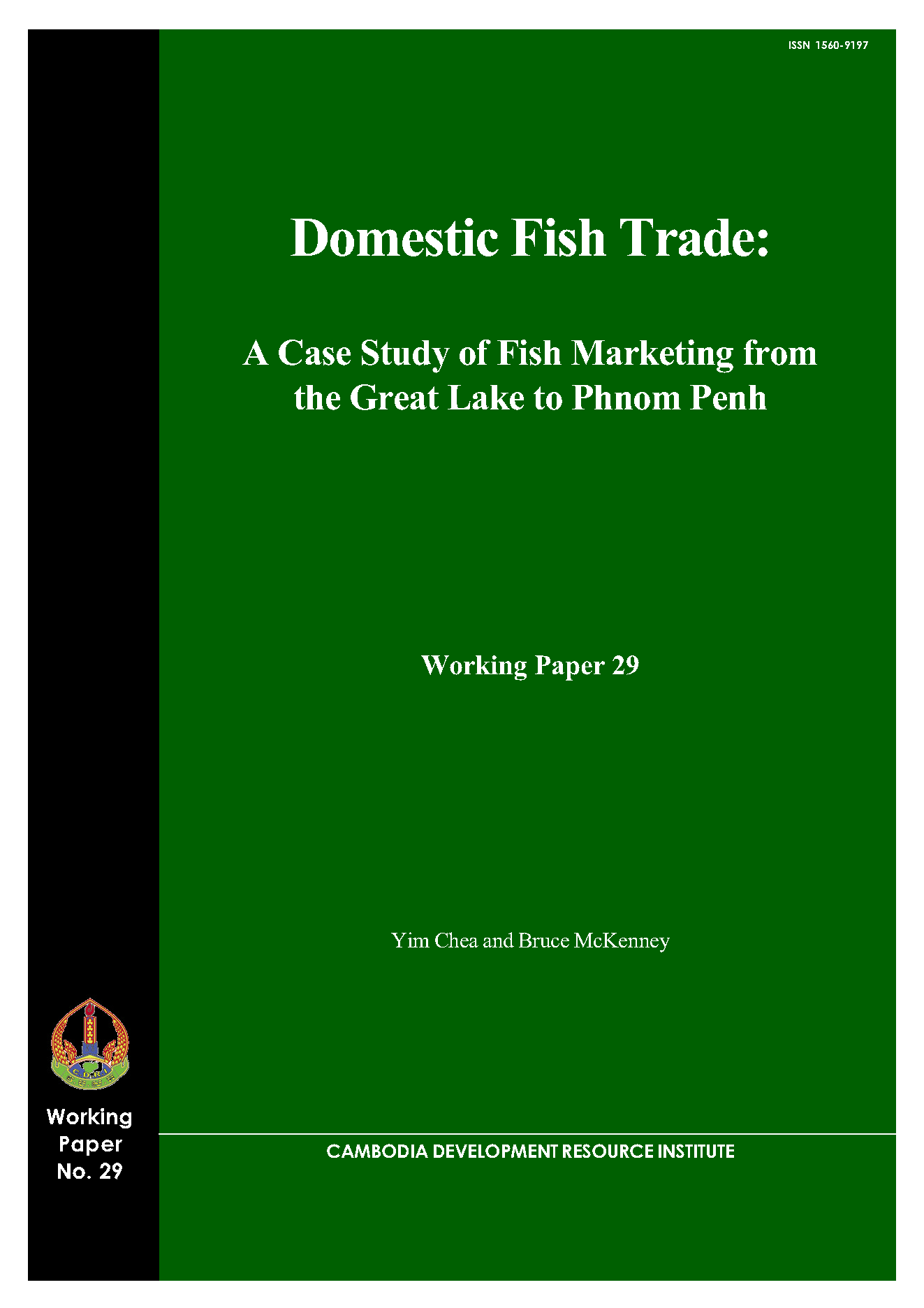
Domestic Fish Trade: A Case Study of Fish Marketing from the Great Lake of Phnom Penh
This study investigates the domestic freshwater fish trade in Cambodia, focusing on the marketing chain from the Tonle Sap (Great Lake) to retail markets in Phnom Penh. As one of Cambodia’s most traded commodities, freshwater fish play a vital role in rural livelihoods and food security. The research examines market structures, transaction dyn...
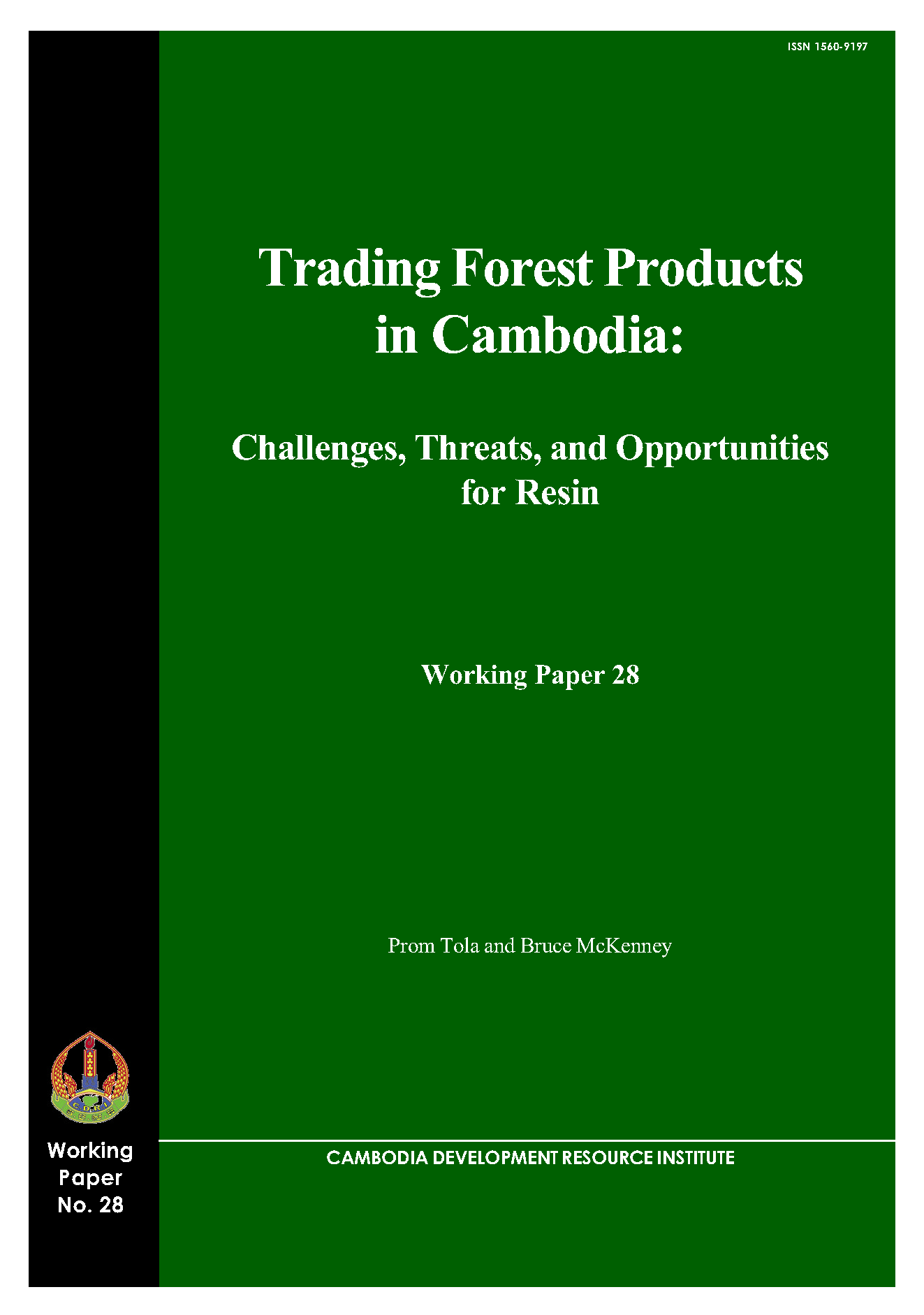
Trading Forest Products in Cambodia: Challenges, Threats, and Opportunities for Resin
Forests support rural livelihoods in Cambodia in a number of important ways. Almost all rural Cambodians use forest resources for cooking fuel and construction materials. Many also collect other products for household use and income generation through trade, such as bamboo, rattan, resin, wild fruits and vegetables, and medicinal materials. In...
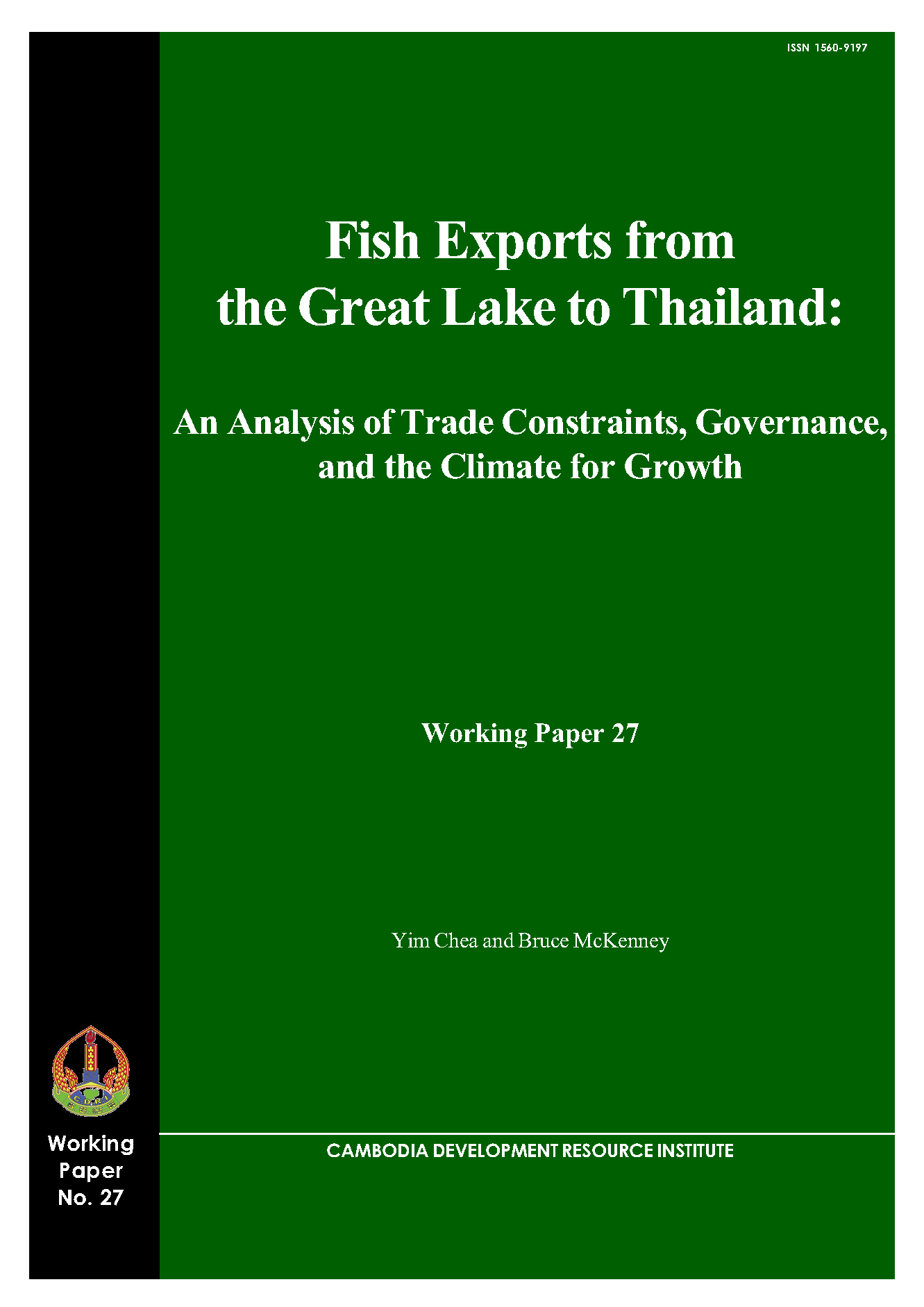
Fish Exports from the Great Lake to Thailand: An Analysis of Trade Constraints, Governance, and the Climate for Growth
Fisheries play a vital role in supporting rural livelihoods throughout Cambodia, but especially around the Tonle Sap (Great Lake) area where more than one million people depend on the fisheries sector for employment, income, and food security. With large surpluses of fish caught during peak fishing periods, fish trade and export is critical to...
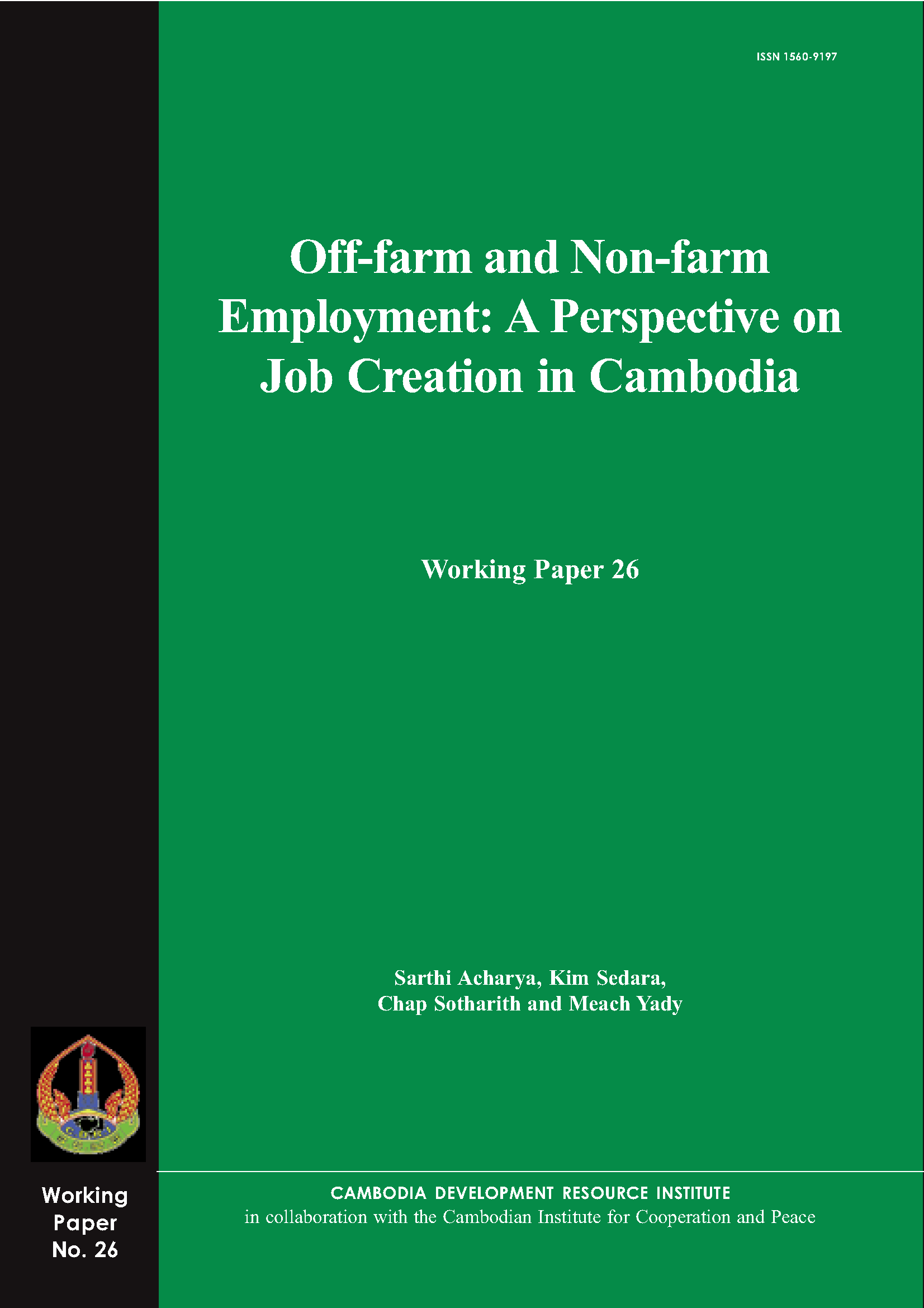
Off-farm and Non-farm Employment: A Perspective on Job Creation in Cambodia
In rural Cambodia, options to maintain sustainable livelihoods have been limited to subsistence agriculture for reasons that are largely historical. Efforts to modernise the economy during the 1950s and 1960s bore some fruit, but the real impact was restricted to a few urban areas. During the 1980s and 1990s, some activities fanned out into the...
